 Summer is officially here and while not everyone may be able to travel to an idyllic paradise or vacation in a far off land, there’s plenty of room for escape in a good, captivating read.
Summer is officially here and while not everyone may be able to travel to an idyllic paradise or vacation in a far off land, there’s plenty of room for escape in a good, captivating read.
Below you’ll find ATG’s suggested summer reading list, ranging from all things contemporary to ancient. Happy summer – and happy reading!
ALL THINGS CURRENT
The Girl On The Train (2015)
Paula Hawkins
Mystery and thriller lovers are sure to enjoy Paula Hawkin’s debut New York Times bestselling novel, The Girl on the Train. Rachel, an alcoholic who seemingly ruined her relationship with a man she loved, becomes captivated by a couple she observes from afar during her commute to and from London each day. When she learns that the woman, Megan, has gone missing, Rachel willingly involves herself in the investigation, which is made all the more convoluted by her unreliable memory and repeated episodes of drunken incoherence. A true psychological thriller and page-turner, it leaves you guessing until the very end.
All The Light We Cannot See (2014)
Anthony Doerr
From Cleveland, Ohio-born native Anthony Doerr comes a 2015 Pulitzer Prize winning novel that tells the story of a blind French girl and a German boy whose paths collide in occupied France while trying to survive during World War II. Marie-Laure LeBlanc is the blind daughter of a widowed master locksmith in Paris who is entrusted with keeping a priceless blue diamond called the Sea of Flames hidden from Germans’ hands. Werner Pfennig is an orphan with a passion for science and gift for radio mechanics who eventually becomes tasked with finding the senders of illegal radio transmissions.
Deeply moving and beautifully written, Doerr weaves the lives of these two children together magnificently, illuminating the ways, “against all odds, people try to be good to one another.” Ten years in the writing, All The Light We Cannot See was also a 2014 National Book Award finalist.
ALL THINGS SOUTHERN
Southern literature, occupying a monumental space in the worldwide literary landscape, is known for capturing the significant role that family, religion and community play in this region of the United States.
This becomes readily apparent in the work of Pat Conroy, a contemporary, leading figure of late-20th century Southern literature and author of numerous New York Times bestsellers. Born in Atlanta in 1945, he does what southerners do best: tells a story. Influenced in high school after his English teacher introduced him to Thomas Wolfe’s Look Homeward, Angel, his writing has been described as being “characterized by a lyrical, emotionally charged prose, a heavy reliance on personal and family experiences, and a strong sense of place.” Learn more about Pat Conroy here.
The Prince of Tides (1986)
Pat Conroy
Considered Conroy’s most celebrated work, The Prince of Tides spent fifty-one consecutive weeks on the New York Times hardcover bestseller list and sold 350,000 first-run copies, later leading to a blockbuster movie in 1991 for which Conroy co-wrote the Oscar-nominated screenplay.
It tells the story of Tom Wingo, an unemployed South Carolina teacher struggling from a nervous breakdown who travels to New York City after learning that his twin sister, Savannah, has attempted suicide. A beautifully written narrative that spans 40 years and revolves around the traumatic events of Tom and Savannah’s upbringing, Conroy evokes raw human emotions while providing an authentic glimpse into the scenic, soothing nature of the South Carolina Lowcountry.
Also of note: In 1988, Jimmy Buffett and Michael Utley wrote a song titled “Prince of Tides” for Buffett’s 16th studio album, Hot Water.
The Lords of Discipline (1980)
Pat Conroy
Preceding The Prince of Tides is another masterpiece by Conroy that tells the story of four cadets at the Citadel, The Military College of South Carolina. Here readers are thrust into the turbulent lives of these “bloodbrothers” – including narrator Will McLean – as they undergo hazing from senior cadets and experience the notoriously brutal conditions of military training. Tasked with keeping an eye on the Citadel’s first black cadet, McLean learns of a secret fraternity that utilizes violent tactics to force out those they deem inferior. Exposing the forces of good and evil, loyalty and betrayal, Conroy captures the chaotic journey into manhood with humor and suspense, honesty and magnificence.
To note: Other favorites of Conroy’s include The Great Santini (also made into an Oscar-nominated film), The Water Is Wide and Beach Music.
Next we turn to Flannery O’Connor (1925-1964), considered one of the greatest short story fiction writers of the 20th century. Born in Savannah in 1925, she studied writing at the University of Iowa in 1945 and published her first short story, “The Geranium” the following year.
After completing her MFA in 1947, O’Connor won the Rinehart-Iowa Fiction Award for her first novel, Wise Blood, and was accepted at Yaddo, an artists’ retreat in Saratoga Springs, New York where she befriended poet Robert Lowell.
She published her first short-story collection, A Good Man is Hard to Find, in 1955, but some of her most popular short fiction is found in her second collection, Everything That Rises Must Converge (1965), including the famous “Revelation.”
While she grew up as a devout Catholic in the Southern Bible Belt, much of her fiction is concerned with fundamentalist Protestants, many of whom she admired for the “integrity of their search for the Truth.”
Similar to the comedy of Dante, “O’Connor’s dark humor consciously intends to underscore boldly our common human sinfulness and need for divine grace.” (info taken from here).
The Habit of Being (1979)
Flannery O’Connor
Published post humorously in 1979, The Habit of Being is a collection of letters from O’Connor, edited by Sally Fitzgerald, that was named “one of the twelve most influential religious books of the decade” by Christian Century magazine. Spanning the years 1948 to 1964 when she died at the age of 39 after a long battle with lupus, the letters are written to students, English professors, a literary agent and others, revealing some of O’Connor’s most profound religious convictions.
As James E. Hoogan writes, “This is a book that should provide pleasure to O’Connor fans as well as encourage those not overly familiar with her work to read more of this gifted storyteller.”
To note: We are also fans of two other well-respected Southern writers, William Faulkner and Eudora Welty.
ALL THINGS HISTORY
George Washington Biographies
With the 2016 Presidential Campaign now set in motion, we thought it would be prudent to explore “All Things George Washington” to learn about the character and qualities of a great leader. Such books are also an educational escape into an era of a distant past that sheds light on the founding of our country, offering insight into the principles and values that have come to define America.
Here are three top picks:
Washington’s Circle: The Creation of the President (2015)
David and Jeanne Heidler
Washington: A Life (2010)
Ron Chernow
Washington: The Indispensable Man (1974)
James Thomas Flexner
ALL THINGS WISDOM
Equally interesting for philosophy lovers and those seeking life wisdom, Marcus Aurelius’ Mediations is a fascinating, easily digestible read that challenges you to consider your own personal convictions and beliefs.
Meditations (170-180 AD)
Marcus Aurelius
Marcus Aurelius Antoninus Augustus (often referred to as “the wise”) was Emperor of the Roman Empire from 161 to his death in 180 AD. Considered the last of the “Five Good Emperors”, he is also known as one of the most important philosophers of Stoicism, a school of Hellenistic philosophy that emphasized moderation and emotional control (it taught that virtue, the highest good, is based on knowledge, and that the wise live in harmony with the divine Reason that governs nature, and are indifferent to pleasure or pain).
His work, Meditations, was written in Greek while on campaign between 170 and 180 and is a compilation of spiritual reflections, private notes and ideas on Stoic philosophy. Divided into 12 books that chronicle different periods of Marcus’ life, his musings cover everything from moral virtue and self-judgment to human rationality and divine providence.
While he never intended his writings for publication, Meditations has remained a timeless collection of infinite wisdom and is revered as a “literary monument to a government of service and duty.”
See also our book reviews of Dana Perino’s And The Good News Is… and David Brooks’ The Road to Character.
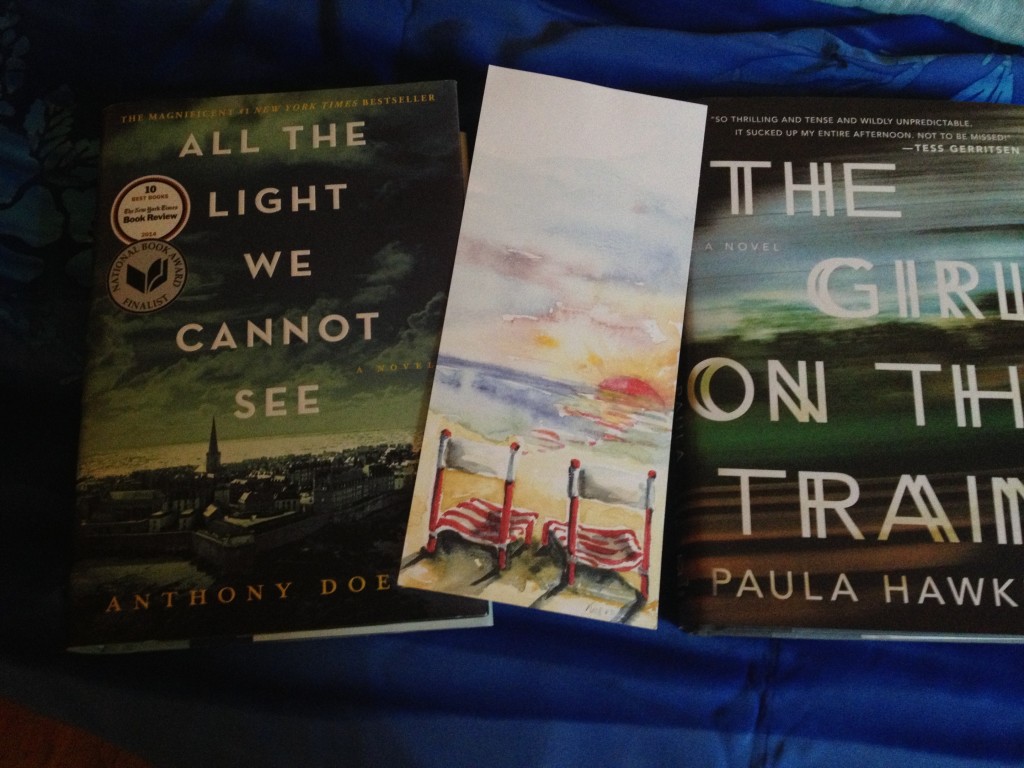
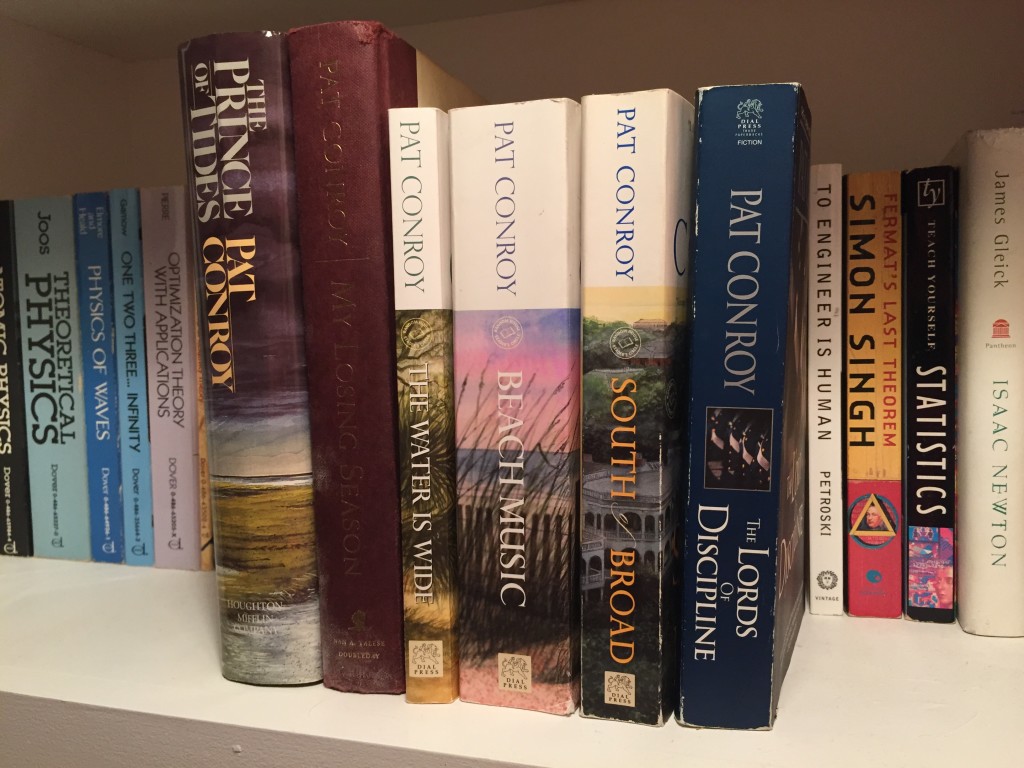
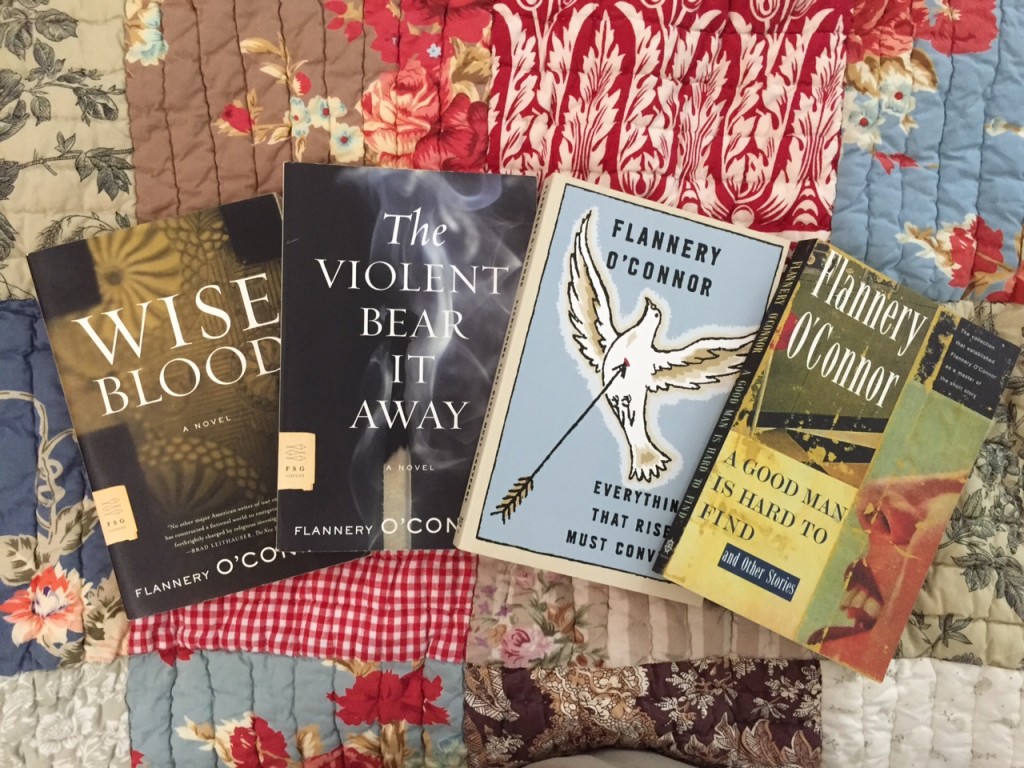
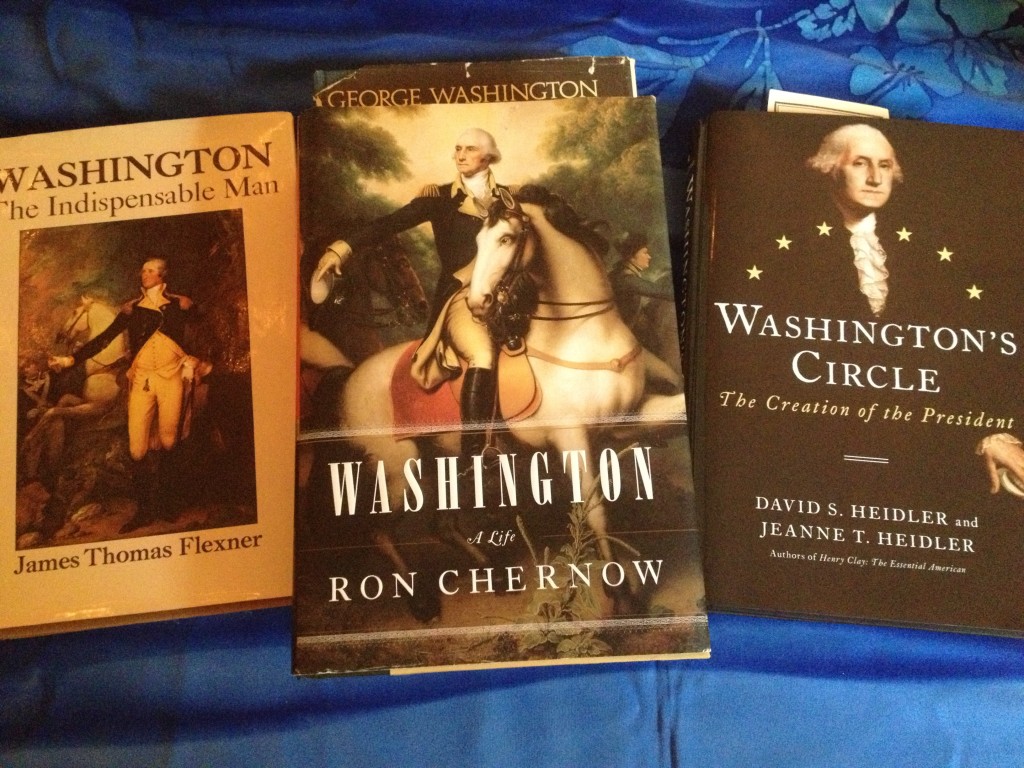
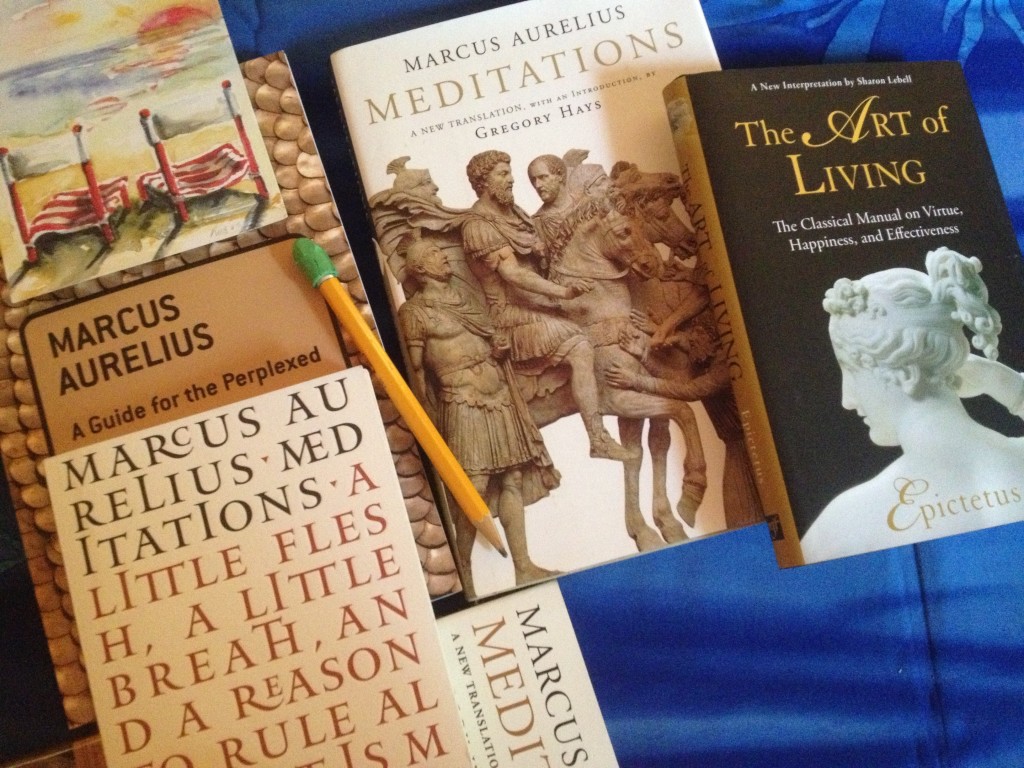
Definitely want to check out the Girl on the Train, thanks for the recommendations!
This is great to get! I’ve been meaning to read All The Light We Cannot See (great title, isn’t it?). Flannery O’Connor is one of my favorite short story writers. I was reading my copy of Aurelius’ Meditations just yesterday. A birthday gift, I seem to recall, from someone lovely and wise… 🙂